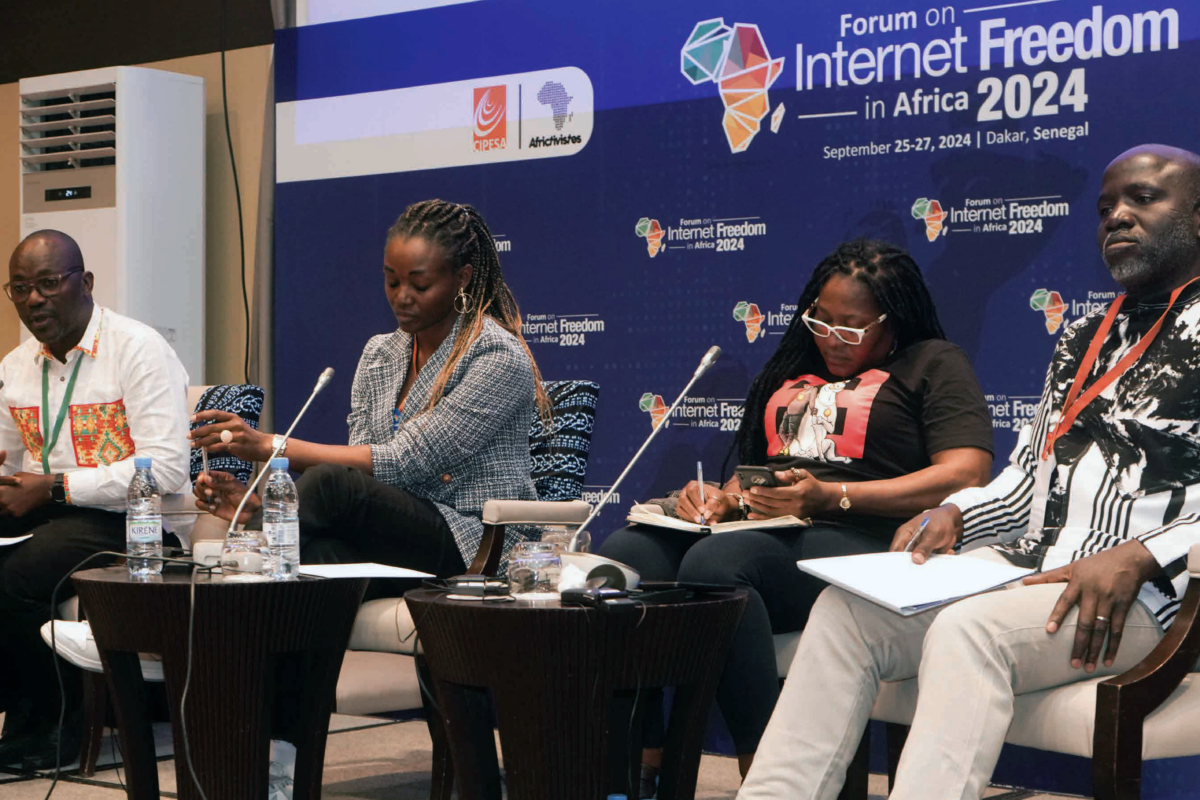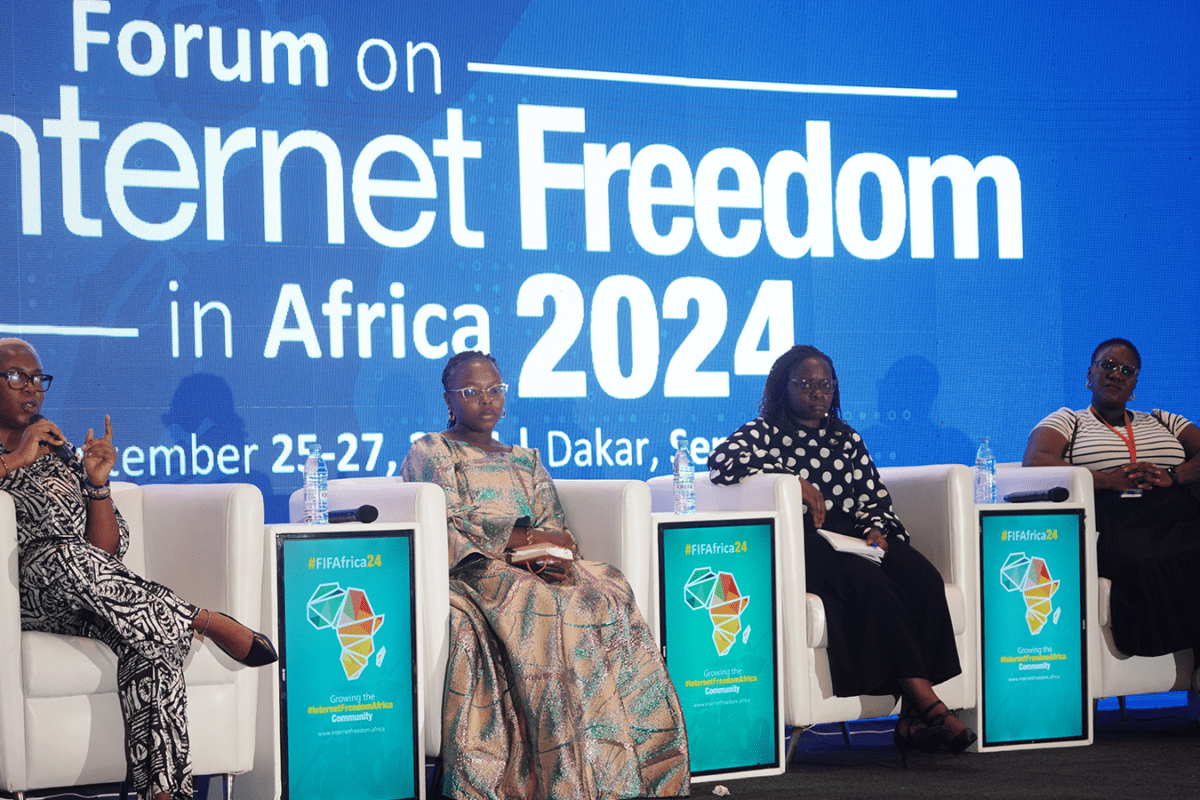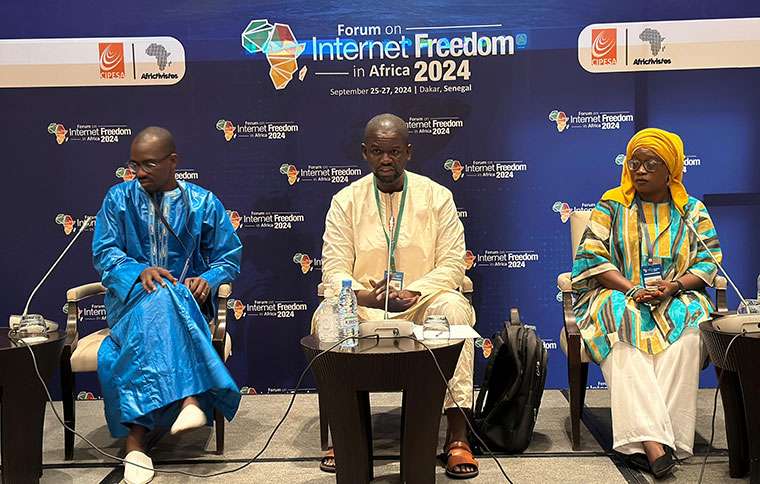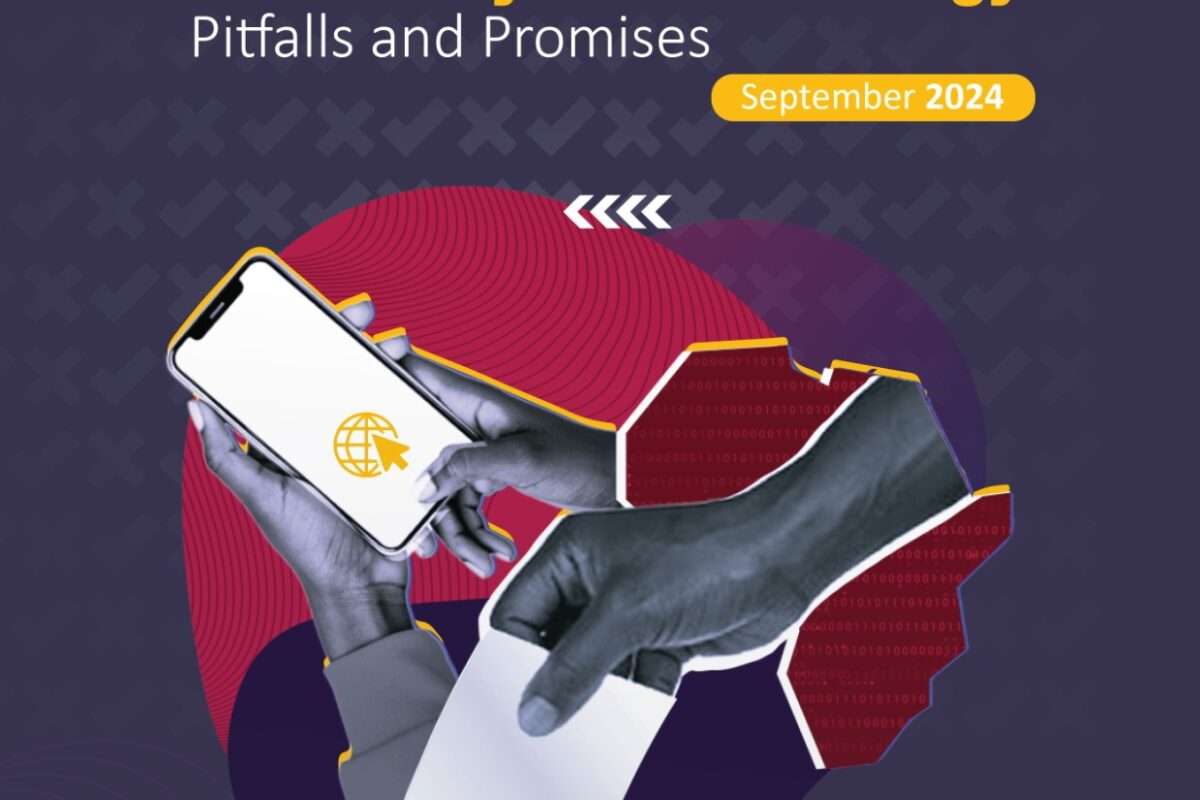By Simone Toussi |
Countries in the Sahel region, including Burkina Faso, Mali, and Niger, present a perilous environment for human rights defenders as military regimes entrench themselves in power. The digital space, once considered a beacon of opportunity for free speech and access to pluralistic information, has steadily come under siege, with the rights to privacy, freedom of expression, and the ability to access and share information increasingly being stifled.
Whereas these countries face the digital rights prevalent in other Francophone African countries, such as internet disruptions, state surveillance, online censorship, and weaponisation of cybersecurity and disinformation laws, the overthrow of civilian governments by the military in the three countries has deepened the level of authoritarianism.
At the Forum on Internet Freedom in Africa – hosted by the Collaboration on International ICT Policy for East and Southern Africa (CIPESA) and AfricTivistes in September 2024 in Dakar, Senegal, experts gathered to discuss the mounting challenges and opportunities for digital rights in the region. The session highlighted the precarious position of human rights defenders in the region and the role of digital technologies in both exacerbating and addressing these challenges.
In line with CIPESA’s work to address the information disorder in Sub-Saharan Africa and equip actors to better advocate for rights-respecting digital laws, the session addressed critical digital rights concerns as well as pressing social issues such as gender inequality, armed conflict, and the deteriorating press freedom, while examining the regulatory framework emerging in response to these issues.
Human rights defenders in the Sahel, particularly women’s rights activists and journalists, face immense challenges due to the political instability, armed violence, and authoritarian regimes which have imposed severe restrictions on press freedom, the flow of information, and civil society activities.
According to Djibril Saidou from International Media Support (IMS), digital rights challenges in the Sahel go beyond protecting free speech. “It’s about ensuring access to information on urgent issues like gender rights and armed conflicts,” said Saidou. Given the challenging contexts, he stated that intervention efforts should be focused on resisting censorship and promoting resilience for advocates of digital rights and democracy.
Chantal Nare, a feminist blogger of Bloggueuses226 and activist from Burkina Faso, shared her experience advocating for women’s rights in such a volatile environment. She highlighted the constant fear of retaliation and surveillance, which stifles free expression, even on digital platforms. Chantal raised a crucial question: “How can digital technologies like WhatsApp or blogs be used to protect and empower women without exposing them to further risk from state or extremist actors?”
Urbain Yameogo from Centre for Information and Training on Human Rights in Africa (CIFDHA) cited the abuse of cybercrime and anti-terrorism laws to curtail freedom of expression.
“The 2015 Anti-Terrorism law in Burkina Faso, initially allowed journalists some latitude to access sensitive information related to terrorism for professional purposes. However, revisions to the Penal Code in 2019 removed these exemptions, exposing journalists to prosecution for acts they would have previously carried out in the course of their work, such as accessing websites linked to terrorism. This change has created a legal grey area where journalists and human rights defenders are left vulnerable to legal persecution.” – Urbain Yameogo, CIFDHA.
Panelists emphasised that journalists in the region who report on sensitive topics such as terrorism and human rights violations are increasingly prosecuted under cybercrime laws rather than traditional press laws, which historically offered more protection for media practitioners. This shift undermines the rights of journalists to report freely, as cybercrime laws are often ill-defined and can be interpreted broadly to suppress legitimate journalistic work.
Faced with the challenge of defending digital rights in an environment of heightened fear of reprisals from the military regimes, some participants emphasised the need for exercising extreme caution and taking a conciliatory approach to their work.
This was underscored by Cheikh Fall from the regional human rights organisation AfricTivistes: “Sometimes, we must choose between life and freedom. In Sahel countries under military rule, digital rights are overshadowed by the immediate need for survival. This stark reality emphasises that when basic human rights are at stake, the struggle for freedom becomes paramount. It’s essential to recognise that in such situations, the struggle for basic human rights is intertwined with the fight for freedom.”
Proposals were made to create unified laws addressing both digital and media issues. However, given concerns that such laws could be double-edged, potentially enhancing repression rather than protecting freedoms, inclusive dialogue and participatory policy processes were crucial. This would ensure strengthened protection not only for journalists and advocates, but also women and other vulnerable groups. In this regard, Nare called for legislation that encompasses both physical and digital forms of repression.
Beyond the legal reforms, the panelists also emphasised the need for increased digital security training and stronger collaboration between local and international actors.







